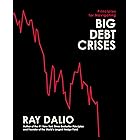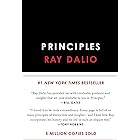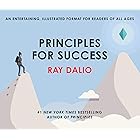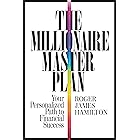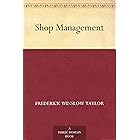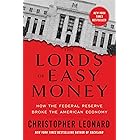| Print List Price: | $35.00 |
| Kindle Price: | $16.99 Save $18.01 (51%) |
| Sold by: | Simon and Schuster Digital Sales LLC Price set by seller. |
Your Memberships & Subscriptions

Download the free Kindle app and start reading Kindle books instantly on your smartphone, tablet, or computer - no Kindle device required.
Read instantly on your browser with Kindle for Web.
Using your mobile phone camera - scan the code below and download the Kindle app.

OK
 Audible sample Sample
Audible sample Sample 


Principles for Dealing with the Changing World Order: Why Nations Succeed and Fail Kindle Edition
“A provocative read...There are few tomes that coherently map such broad economic histories as well as Mr. Dalio’s. Perhaps more unusually, Mr. Dalio has managed to identify metrics from that history that can be applied to understand today.” —Andrew Ross Sorkin, The New York Times
From legendary investor Ray Dalio, author of the #1 New York Times bestseller Principles, who has spent half a century studying global economies and markets, Principles for Dealing with the Changing World Order examines history’s most turbulent economic and political periods to reveal why the times ahead will likely be radically different from those we’ve experienced in our lifetimes—and to offer practical advice on how to navigate them well.
A few years ago, Ray Dalio noticed a confluence of political and economic conditions he hadn’t encountered before. They included huge debts and zero or near-zero interest rates that led to massive printing of money in the world’s three major reserve currencies; big political and social conflicts within countries, especially the US, due to the largest wealth, political, and values disparities in more than 100 years; and the rising of a world power (China) to challenge the existing world power (US) and the existing world order. The last time that this confluence occurred was between 1930 and 1945. This realization sent Dalio on a search for the repeating patterns and cause/effect relationships underlying all major changes in wealth and power over the last 500 years.
In this remarkable and timely addition to his Principles series, Dalio brings readers along for his study of the major empires—including the Dutch, the British, and the American—putting into perspective the “Big Cycle” that has driven the successes and failures of all the world’s major countries throughout history. He reveals the timeless and universal forces behind these shifts and uses them to look into the future, offering practical principles for positioning oneself for what’s ahead.
- LanguageEnglish
- PublisherAvid Reader Press / Simon & Schuster
- Publication dateNovember 30, 2021
- File size57799 KB
Customers who bought this item also bought
 Human productivity is the most important force in causing the world’s total wealth, power, and living standards to rise over time.Highlighted by 4,066 Kindle readers
Human productivity is the most important force in causing the world’s total wealth, power, and living standards to rise over time.Highlighted by 4,066 Kindle readers Countries with large savings, low debts, and a strong reserve currency can withstand economic and credit collapses better than countries that don’t have much savings, have a lot of debt, and don’t have a strong reserve currency.Highlighted by 3,229 Kindle readers
Countries with large savings, low debts, and a strong reserve currency can withstand economic and credit collapses better than countries that don’t have much savings, have a lot of debt, and don’t have a strong reserve currency.Highlighted by 3,229 Kindle readers From examining all these cases across empires and across time, I saw that the great empires typically lasted roughly 250 years, give or take 150 years, with big economic, debt, and political cycles within them lasting about 50 to 100 years.Highlighted by 2,771 Kindle readers
From examining all these cases across empires and across time, I saw that the great empires typically lasted roughly 250 years, give or take 150 years, with big economic, debt, and political cycles within them lasting about 50 to 100 years.Highlighted by 2,771 Kindle readers
Editorial Reviews
Review
—Andrew Ross Sorkin, The New York Times
“Dalio’s impressive book . . . has, if not changed my mind, then at least massively shifted the needle on how I see cycle theories. . . . Dalio avoids most of the traps associated with cycle theories. The Changing World Order is jam-packed with charts, showing long-run changes in major countries, often reaching back centuries. . . . He manages to do what many successful investors writing books about their investment lens fail at: delivering something new and interesting without giving away precisely the secret sauce that fueled his success.”
—Joakim Book, American Institute for Economic Research
“Ray Dalio has a special talent for identifying the key questions of our time. In this sweeping new book, he marshals a variety of economic, social, and political measures to trace the rise and decline of nations. It is a serious contribution—and an urgent warning to the West.”
—Henry Kissinger
“An audacious, practical guide to the rise and fall of empires over the last five hundred years of history—with important lessons for the U.S. and China today.”
—Graham Allison, Douglas Dillon Professor of Government at Harvard University and author of Destined for War
“Ray Dalio has a unique talent for making important and complex issues simple. I was riveted by his descriptions of the cause/effect relationships that drove the last five hundred years of history and how they provide practical guidance for dealing with what is happening now. This may well be the most important book of the year if not the decade. A must-read.”
—Arianna Huffington
“A super provocative, super important must-read. It lines up a lot of facts to create a scary picture that’s hard to refute.”
—Bill Gates
“When Ray Dalio talks, I listen. His new book is remarkable in its scope—shedding new light on the biggest reasons nations win in the global economic and political arenas, and applying it to China and the US today. After reading this book, you probably won’t see the world the same again.”
—Henry Paulson
“Ray Dalio’s latest book should be required reading for everyone. It would be irresponsible not to understand what Ray has laid out, steeped in history, serving as a roadmap for the future.”
—Mary Callahan Erdoes, CEO of J.P. Morgan Asset & Wealth Management
“History is too important to leave to historians. Only Ray Dalio would have the brilliant audacity to attempt such a synthesis of the financial, economic, and political history of the world. Agree or disagree, Dalio’s book is essential reading to understand our times.”
—Lawrence H. Summers
“How do we learn from history so that we don’t repeat the same mistakes that have led to the downfall of nations? By reading Ray's book Principles for Dealing with the Changing World Order. Ray shows us how history can provide a template to help guide how we might think about what comes next. And for those of us who might shudder at reading 576 pages, he provides an ingenious highlighted path that makes the book a shockingly easy, yet comprehensive, read.”
—Mark Cuban
“Everything Ray Dalio writes is compelling reading for the investor and the policymaker. This is an excellent, deeply thoughtful study of what drives the rise and demise of economic cycles and empires.”
—Tim Geithner
“Ray Dalio has an uncanny capacity to understand what is happening in the world and develop principles that allow him to prepare for what’s ahead. Principles for Dealing with the Changing World Order is amust-read full of insights into where the world is today and where it’s going.”
—Tony Robbins
“Ray does an astounding job of giving us an inspiring and thought-provoking experience by looking at the rises and declines of empires, showing how economics, culture, military prowess, innovation, inequality, and other elements interact. He leaves us with an improved perspective for thinking about very vexing issues such as the state of America versus China.”
—Jamie Dimon
Praise for Ray Dalio's Principles: Life and Work, Winner of the Axiom Business Book Award for 2018
“Mr. Dalio has long been an object of fascination. . . . His new book is more significant than the original list of principles: It is part memoir, part how-to guide. It is a deeply personal story, with Mr. Dalio wading into how he started his firm in 1975, internal conflicts inside the company, and strife early on in his career. The book is both instructive and surprisingly moving. . . . Underneath what may seem like a clinical, emotionless approach is something different and far more poignant: Mr. Dalio is preaching for individuals to have a sense of humility and introspection, an ability to open themselves to appreciate pointed criticism and use it to improve.”
—The New York Times
“If there was an ‘it’ book for businesses or careers in 2017, it was Ray Dalio’s Principles. The book, weighing in at nearly 600 pages, begins with the author’s own story, including the rise of Bridgewater Associates, Dalio’s highly successful investment firm. Part memoir, part strategic plan, Dalio uses his own history to provide suggestions on attaining success while always stressing the power of individuality and personal goals. This isn’t just a book for the power elite. Dalio’s highly detailed game plan focuses on what he calls ‘radical’ truths and transparencies, and are applicable to the careers of powerful CEOs, ladder-climbing executives, longtime grunts, and fresh-faced rookies.”
—Chicago Tribune
“Ray Dalio has provided me with invaluable guidance and insights that are now available to you in Principles.”
—Bill Gates
“I found it to be truly extraordinary. Every page is full of so many principles of distinction and insights—and I love how Ray incorporates his history and his life in such an elegant way.”
—Tony Robbins
“Ray Dalio’s market acumen is legendary, but it was creating and living by a set of principles that allowed him to reach the top. Everyone with goals and dreams can learn from Ray’s approach.”
—Michael Bloomberg
“I was surprisingly moved by it. I found it to be remarkably engaging. It made me think about life and how we all deal with each other in pretty profound ways. And Mr. Dalio’s own story about how he came to these principles is fascinating.”
—Andrew Ross Sorkin
“The billionaire investor has created the strongest culture I’ve ever seen in an organization—one that prizes radical transparency over politics and meritocracy over democracy. In his long-awaited book, he describes the systems that he has designed to shape meaningful work, meaningful relationships, and the world’s most successful hedge fund.”
—Adam Grant
“I highly, highly recommend this book. It has already changed how I think about making decisions in my life and in my business.”
—Tim Ferriss
“Principles had a profound positive impact on my leadership style—through living more honestly.”
—Reed Hastings
“Among a handful of philosopher-investors known not only for moneymaking prowess but also for their distinctive take on life.”
—The Wall Street Journal
“What makes Dalio compelling is not just his track record but the way he goes about making money, and the rigorous analysis he applies to understanding markets, organizations, the economy, and life.”
—Fortune
About the Author
Product details
- ASIN : B0881Y73YG
- Publisher : Avid Reader Press / Simon & Schuster; 1st edition (November 30, 2021)
- Publication date : November 30, 2021
- Language : English
- File size : 57799 KB
- Text-to-Speech : Enabled
- Enhanced typesetting : Enabled
- X-Ray : Enabled
- Word Wise : Enabled
- Sticky notes : On Kindle Scribe
- Print length : 570 pages
- Page numbers source ISBN : B0CLYLKFHP
- Best Sellers Rank: #27,837 in Kindle Store (See Top 100 in Kindle Store)
- Customer Reviews:
About the author

Ray Dalio is the founder and co-chairman of Bridgewater Associates, which, over the last forty years, has become the largest and best performing hedge fund in the world. He is the author of #1 New York Times Bestseller and #1 Amazon Business Book of the Year, Principles. Dalio has appeared on the Time 100 list of the most influential people in the world as well as the Bloomberg Markets list of the 50 most influential people. He lives with his family in Connecticut.
Customer reviews
Customer Reviews, including Product Star Ratings help customers to learn more about the product and decide whether it is the right product for them.
To calculate the overall star rating and percentage breakdown by star, we don’t use a simple average. Instead, our system considers things like how recent a review is and if the reviewer bought the item on Amazon. It also analyzed reviews to verify trustworthiness.
Learn more how customers reviews work on AmazonReviews with images
-
Top reviews
Top reviews from the United States
There was a problem filtering reviews right now. Please try again later.
One of the best features of the book is its organization. The book is broken down into 14 chapters, each focusing on a different aspect of the changing world order. Dalio starts with the big picture, examining the major forces driving the changing world order, before delving into the specifics of each major empire, including the Dutch, British, American, Chinese, Soviet, and Japanese empires. Ultimately, he brings everything full circle by discussing the changing world order today and what the future may hold.
Another great aspect of the book is the way that Dalio weaves history and economics together. He doesn't just present economic theories in a vacuum; he uses real-world examples to show how they have played out over time. For example, in Chapter 5, he discusses the Great Depression and how it shaped the changing world order in the 1930s and 1940s. He also uses the rise of populism in Chapter 7 to illustrate how economic inequality can lead to political instability.
Overall, I would highly recommend "The Changing World Order" to any intelligent human interested in economics, history, or politics. This book is a must-read for anyone who wants to understand the forces shaping our world today and what the future may hold. As Dalio himself puts it, "understanding how the world works is essential if you want to accomplish your goals and live a fulfilling life."
Here are some key takeaways from the book:
The changing world order is driven by three major forces: the changing relative powers of countries, the changing relative productivity of countries, and the changing values of countries.
The rise and fall of empires is a natural part of the changing world order. Each empire has its own unique characteristics, but they all follow a similar pattern of rise, peak, and decline.
The post-World War II order was built on the idea of free trade and cooperation between nations. However, this order is now under threat due to rising nationalism and protectionism.
China is currently on the rise and is likely to become the world's dominant economic power in the coming decades. However, although this rise is not guaranteed, and there are many challenges that China will need to overcome, the US needs to step up its game on several fronts to compete.
The future of the world order is uncertain, but there are a few things we can say with some degree of certainty. For example, the rise of automation and artificial intelligence is a hot topic today likely to have a major impact on the global economy in the coming years.
Overall, "The Changing World Order" is a well-written and informative book that is sure to appeal to a wide range of readers. Whether you're a history buff, an economics nerd, or just someone who wants to better understand the world we live in, this book is well worth your time. As Dalio himself says, "The more you know, the more you'll understand, and the more you'll be able to make informed decisions about your own life." Five stars from me, give it a read!
Reviewed in the United States on May 9, 2023
One of the best features of the book is its organization. The book is broken down into 14 chapters, each focusing on a different aspect of the changing world order. Dalio starts with the big picture, examining the major forces driving the changing world order, before delving into the specifics of each major empire, including the Dutch, British, American, Chinese, Soviet, and Japanese empires. Ultimately, he brings everything full circle by discussing the changing world order today and what the future may hold.
Another great aspect of the book is the way that Dalio weaves history and economics together. He doesn't just present economic theories in a vacuum; he uses real-world examples to show how they have played out over time. For example, in Chapter 5, he discusses the Great Depression and how it shaped the changing world order in the 1930s and 1940s. He also uses the rise of populism in Chapter 7 to illustrate how economic inequality can lead to political instability.
Overall, I would highly recommend "The Changing World Order" to any intelligent human interested in economics, history, or politics. This book is a must-read for anyone who wants to understand the forces shaping our world today and what the future may hold. As Dalio himself puts it, "understanding how the world works is essential if you want to accomplish your goals and live a fulfilling life."
Here are some key takeaways from the book:
The changing world order is driven by three major forces: the changing relative powers of countries, the changing relative productivity of countries, and the changing values of countries.
The rise and fall of empires is a natural part of the changing world order. Each empire has its own unique characteristics, but they all follow a similar pattern of rise, peak, and decline.
The post-World War II order was built on the idea of free trade and cooperation between nations. However, this order is now under threat due to rising nationalism and protectionism.
China is currently on the rise and is likely to become the world's dominant economic power in the coming decades. However, although this rise is not guaranteed, and there are many challenges that China will need to overcome, the US needs to step up its game on several fronts to compete.
The future of the world order is uncertain, but there are a few things we can say with some degree of certainty. For example, the rise of automation and artificial intelligence is a hot topic today likely to have a major impact on the global economy in the coming years.
Overall, "The Changing World Order" is a well-written and informative book that is sure to appeal to a wide range of readers. Whether you're a history buff, an economics nerd, or just someone who wants to better understand the world we live in, this book is well worth your time. As Dalio himself says, "The more you know, the more you'll understand, and the more you'll be able to make informed decisions about your own life." Five stars from me, give it a read!

Mr. Dalio’s arguments and analysis are sound and make good sense. His interpretation and description of various historical events, especially those pertaining to the British and Dutch empires, are right on target. Throughout the book, he is consistent in the application of his analytic model. This is noteworthy as I felt his analysis of China to be slightly flawed. The author appears to have omitted certain elements of modern-day China; most notably is the pending population time bomb caused by their previous one child policy. China’s population is now shrinking. In addition, and unlike America, the Chinese seem culturally incapable of using immigration to solve their problem. This opposing view of China, however, does not detract from the author’s overall analysis. He is consistent in his analysis and cites other data which support counter arguments.
Bottom line, this book was far more interesting than I anticipated. Even though the author’s analysis is complex, the book is well written and easy to understand. The narrative is both captivating and entertaining. Overall, this is just a great book.
It is hard to evaluate the merits of Dalio's historical model given that he is only presenting it at moderate depths so as to introduce it all in one volume. The model says that empires rise and fall, no surprise, and talks about the interplay of economic, internal, and external factors that take an empire through the cycle. Dalio also mentions that inside the Big Cycle there are other cycles, and inside those cycles other cycles. He does not, however, go into much detail regarding the sub-cycles. This sounds reminiscent of Robert Prechter's Elliot Waves or perhaps, even, pre-Copernican astrology. Is this a model so loose, like Elliot Waves, that it can be found to fit anything that could happen? Is it falsifiable? Along the way was the validity tested by approaching an empire that there was little prior knowledge of to make "forward predictions" regarding what would happen? Has Dalio merely cherry picked the three examples which best seem to demonstrate the soundness of the model while omitting more problematic cases? There is not enough in this book to do a rigorous analysis.
The United States Civil War is a good example of something I had trouble thinking about in terms of the model. According to the model the final stage in an empire's breakdown is civil war or revolution. In the case of the United States, however, the Civil War occurred while the United States was still ascendant: in stage 2 out of 6 with stage 3 being the peak. Certainly there was no debt crisis which caused the Civil War and the United States had little going on in terms of external conflict at the time. So perhaps that could have been taken as a "prediction" that the United States would almost certainly have survived the Civil War in tact? The truth, however, is that the South came very close to winning the Civil War, in the sense of being recognized as independent, according to McPherson's Battle Cry of Freedom.
Another thing that I am not sure how to evaluate using the model is the United States after the Civil War and after the Revolution. Although these were periods of rebuilding they do not seem to fit well into Dalio's model. After victory in these conflicts Americans were very magnanimous (as it was later after World War II). Far from being purged those who were on the wrong side of history ended up facing rather little in the way of consequences. So how does this fit into the model? Obviously, there will be some "rebuilding" after a Revolution or Civil War so is the model just saying there will be something which could not not happen? Indeed although the United States was vibrant after the Revolution, the period after the Civil War as described in Richard White's The Republic for Which it Standards seems in decline compared to the Antebellum period. According to Dalio's model, however, the United States was stage 2 rising into stage 3 during this period.
Regardless of the merits of the model, which would probably require many in depth books to evaluate fully, there is definitely some good high level overviews of Chinese, European, and American history. There are many interesting charts and statistics thrown in.
As mentioned, the close of the book is far and away the best part of it. Dalio describes the cultural differences between Americans and Chinese people and their different outlooks toward governing. Dalio does not seem to be pushing any political agenda, at least not too hard, but rather what he has carefully measured to be objectively true. Although clearly an admirer of much about China, he is also willing to criticize some aspects of China. At the same time, his criticism omits its surveillance state.
Looking forward Dalio presents some very interesting charts and statistics regarding America's growing internal conflicts. He even has a graph to show how bad it is now compared to early points in history. Dalio is willing to stick his neck out and quantify what his model is predicting as the probability of civil war in the United States and the probability of military war with China in the next decade.
Although very thought provoking overall, one particularly persistent problem throughout the book is that many of the charts are very hard to read. There are graphs with eight different lines with some of the colors very hard to distinguish between. The book also almost never references its sources. Indeed, given how much history Dalio has obviously studied, a bibliography, or at least a list of recommendations, would be very nice.
Dalio is very repetitive regarding the inevitable death of fiat currencies through money printing. At the same time he also does provide concrete advise of how to prepare. He gives some definite timelines and the dates are very close. To qualify this, somewhat, however, his company Bridgewater Associates has basically had a "lost decade" using his models to generate any kinds of returns since his departure around 2012. Nevertheless it is interesting to think about whether or the US is on the verge of multiple simultaneous crises.




